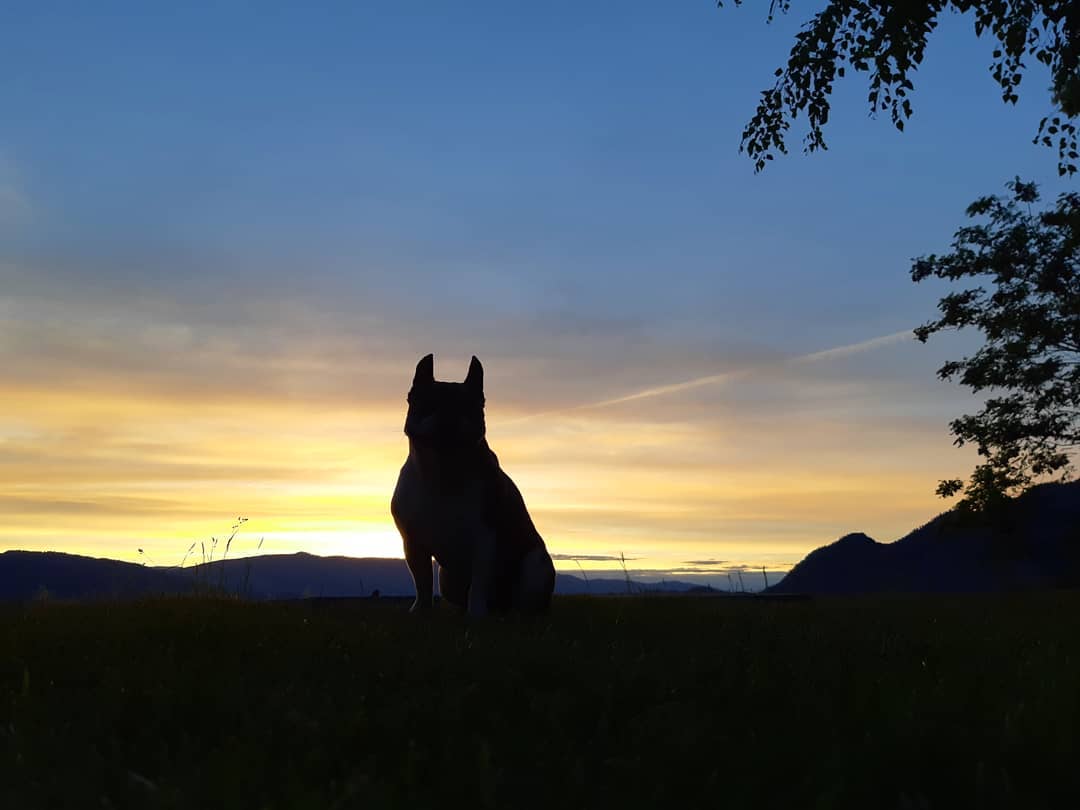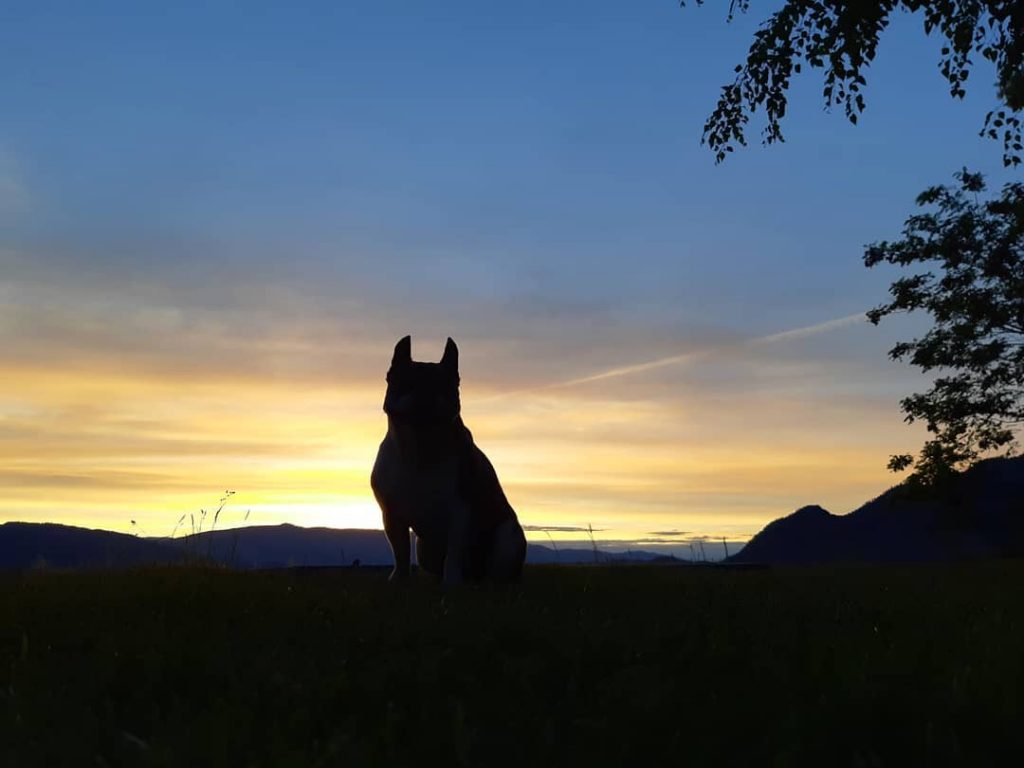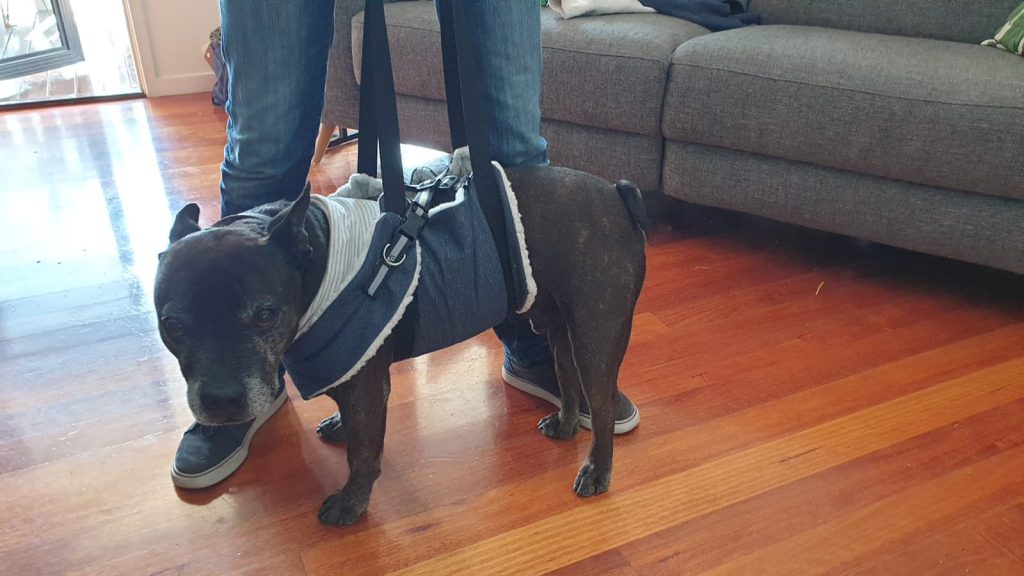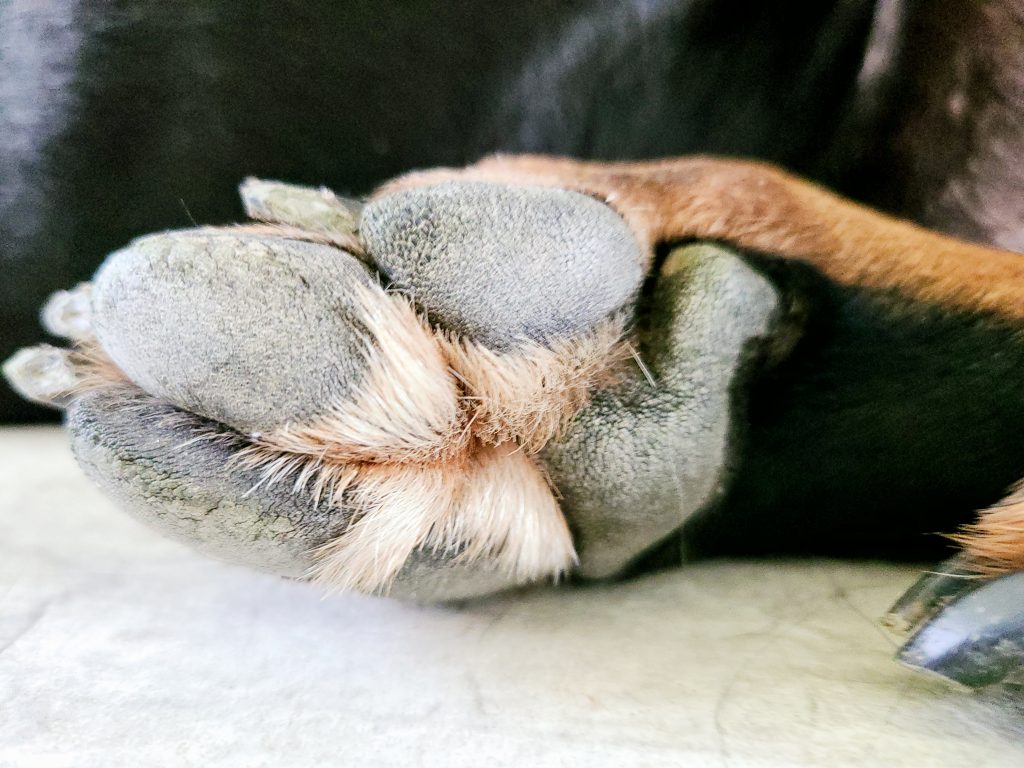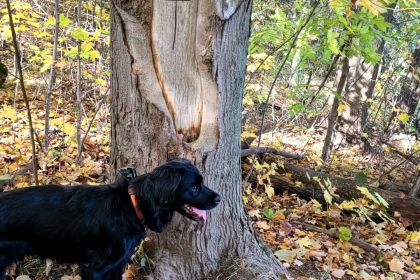For all of us dog parents, if we’re lucky, we go through a universally heartbreaking phase with our dogs: their twilight years. And, building on the metaphor, just like twilight, these years can be sincerely beautiful and special; however, that doesn’t always make them easy.
“Senior” years, for dogs, vary based on their size. That is to say, large dogs get “old” sooner and have shorter lifespans than their smaller compatriots. I think a reasonable sort of ballpark is that around 8 years old, we’re looking at seniors; at least in large dogs.
And the thing is, these senior years kind of sneak up on you, despite their inevitability. Your dog may start slowing down a bit, or start graying a bit in the muzzle (or, adorably, like my Athena, between her toes). Small (or large) medical issues start creeping up on you. And then, for me at least, one day it sort just hit me like a ton of bricks: my dog is old now. I love senior dogs. If I can wax poetic for a second, I really feel a certain wisdom in their eyes, and a certain calmness in their souls. Yet, senior dogs come with their own set of challenges, not least of which is preparing for their inevitable death.
Medical Considerations with Senior Dogs
It can be a real challenge to distinguish between “normal signs of aging” and “treatable medical concerns” with senior dogs. For example, if a senior dog is gaining weight, is it a sign of diabetes or just a sign that they aren’t as active as they once were? If they seem low energy and gaining weight, are they just old and tired, or hypothyroid? If they don’t want to go for walks anymore, are they just stiff and tired, or arthritic? If your dog is more reactive to other dogs, are they just losing patience for socializing, or are they in pain or startled from hearing loss? If they’re getting confused about things they used to know, is it a normal sign of aging, or is it dementia? And, the eternal questions, are those lumps and bumps worth worrying about??
I’m not a vet, nor do I have a magical answer to these questions. What I do know is that a lot of issues that dogs struggle with as seniors can be helped – if not fixed – with medical intervention. My senior Doberman, Athena, seemed to have no energy for walks anymore about a year and a half ago – we’d go maybe 500 meters and she’d lie down and not want to make it home. She was getting older and, added complication, only has 3 legs, so some lack of activity is expected, but… I thought something was off. Bloodwork turned up hypothyroid – not only very treatable, but she was immediately back to her old self within a matter of days. More recently, she wouldn’t take her thyroid meds wrapped in fresh chicken in the morning – very out of character for her – and had zero energy. A visit to the ER showed acute pancreatitis, which we caught pretty early and she seems to be recovering from.
On the other hand, in her younger years, she would go literally 24 hours to avoid having to go out for a pee if it was raining out , and now often wakes me up in the middle of the night to go out for a pee. Nothing on her bloodwork turned up a medical reason beyond her just getting older.
My bottom line with health concerns and senior dogs is simply this: trust your gut but try not to panic.
Lifestyle Considerations with Senior Dogs
While seniors may not be as physically active as they once were, that doesn’t mean they don’t get bored. Plus, I do think with cognitive funtion (and, frankly, probably physical function!) there is an element of “use it or lose it” involved. So, do make sure your dog is still getting out and about and doing things. That might mean sniffy walks or a sensory garden if you’re ambitious, or increasing enrichment and puzzle toys. It might mean going for shorter walks, or taking breaks while on walks. It’s also important to be mindful of the weather, as seniors don’t regulate their body temperature as well as they used to, and things like heatstroke can be a real risk.
I walk my dogs separately now; a good long trek for the puppy, and a shorter loop with Athena. Some days Athena and I just cuddle in the yard and skip the walk, or play a game of fetch (she can normally fetch about 3 times lately before she’s out of steam).
If we’re feeling ambitious and want to go for a longer walk or hike, which she is still enthusiastic about – until she gets a little ways in and runs out of steam – we plan ahead. We bring water, of course, and plan to take breaks and rest stops along the way. I’ll often give her an NSAID before we go, knowing she’ll be sore later. I also have a support harness for her that I always bring on hikes or walks. We rarely need it, but when we do, we’re glad we have it. For the time being, she is still managing stairs in moderation, but I’m sure there will come a time when we’ll use the support harness for that too. Personally, I like the PetSafe CareLift and it’s what we have, but there are many on the market, or you can even make your own.
For the time being, I simply walk up the stairs behind Athena, just in case, and we have a mat at the base of the stairs so she has traction (a yoga mat works well for this); I’m sure sooner or later there will be more and more mats around the house as her mobility worsens, and we’ll likely get a ramp or stairs for the bed. Then, eventually, she’ll no longer do stairs at all, and she and I will sleep downstairs for a while. And that’s just fine.
Other lifestyle modifications? We have a water bowl in the bedroom now so she doesn’t have to go far if she gets thirsty during the night. And, as mentioned, she and I often have a little 2am potty break.
We may need to, with time, manage her environment a bit more for her own safety. Leashes and baby gates will come back, as they did when she was a pup. I think there’s actually a lot of parallels between the puppy phase and the senior phase. A sort of bittersweet cyclical nature to life, I suppose. I cannot recommend enough Eileen Anderson’s book “Remember Me? Loving and Caring for a Dog with Canine Cognitive Dysfunction”. Whether your dog has CCD or not, there are a ton of useful tips for managing senior dogs in your home in it.
Be patient, as their bodies and minds start to go. Love them as unconditionally as they’ve always loved you. Enjoy the time you have and their unique specialness. And slowly, slowly, start thinking about what your plans are for their end of life and death care. That’ll be a whole post on it’s own, one day, but… just slowly, start to wrap your mind around it.

